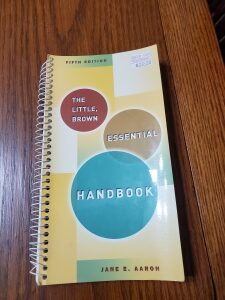
“Content is king.” This phrase has been thrown around by experts for nearly two decades when discussing the role of website content in search engine optimization (SEO), and it ultimately ties back to documentation from search engines like Google. Despite the long history of being talked up, however, actually backing this claim up with ranking results has only become a relatively recent development.
Since Google’s algorithm can now walk the walk, getting a truly great writer in your corner is one of the more important SEO steps you can take to get noticed by search engines and other websites looking for links to great website content. “Great website content” is a pretty nebulous term on its own though, so let’s start by taking a look at several factors Google clearly views as part of this equation:
- 100% original content
- Correct, up to date information about the topic at hand
- Baked-in authority to back up your words
- Reasonable length that covers the discussion thoroughly (often times longer content is better – as long as it remains high quality and useful information)
- Perfect grammar and spelling that only comes from knowing English as a first language

Finding the right balance for your website content is key.
Not everyone is going to do well in all of these areas. Some of you will find certain tasks easier to excel at in than others, as even among writers there is a huge difference between “technical writers,” “creative writers,” or even informal writing vs formal writing. While this can seem a bit overwhelming, the truth is you don’t need to be Geoffrey Chaucer or William Faulkner to create quality website content.
Instead, think back to your high school English class reading Ernest Hemingway. Never use 15 words where 10 will do, speak plainly so individuals understand you, and know what you’re talking about. This seemingly simple formula is a good starting point to write effective website content. Combine that with the five points above and you’ll soon be creating content that both Google and your readers will love.
If you’d rather delegate this area of your workload, keep things simple by making sure any professional you consider hiring for web design and/or SEO is also able to excel at content writing. Too many think about website content as an afterthought, and that is going to hold your SEO and online marketing efforts back no matter how good the design.
Either way, let’s take an in-depth look at what each of these good website content aspects really looks like. Knowing what to look for in quality copy is the best head start we can give you to impress the algorithms that are judging & ranking your website.
Jump ahead to:
Original website content is created from scratch and engages the reader
High schools and colleges, particularly in the last 25 years or so, have created very strict policies regarding plagiarism, a practice where someone utilizes another person’s work in a publication for their own use, passing it off as their own.
While the reasons for these guidelines can boil down to academic integrity, lessons about how to cite sources, a code of ethics, exercises to force students to examine and improve their theories, or some combination of the above, most recognize the idea they draw from. In short, stealing the work of others is wrong.
Google’s algorithms have adopted this idea and applied it to how they rank website content. With a near-perfect memory of everything they have previously read (no mean feat considering the billions of pages that are live today), they’re also able to take this idea a step further by assessing the intent of duplicate website content when they find it.

If you’re duplicating your own content by creating different versions of pages that are optimized for mobile or printers, just let Google know which version is your canonical URL and you’re good. Trying to pull a fast one by “borrowing” someone else’s work? Expect to hear from Google when you’re removed from their search rankings. This levels the playing field so each content creator has the opportunity to succeed.
Naturally, there are those who still think they’ll be able to pull a copy and paste job and achieve instant success for their online presence. Anytime you are tempted to try this, ask yourself when the last time you saw identical results come up in a Google search was. Outside of 20 lazy news sites using the same AP release, I know I haven’t seen it in many years. Even in that example, the news sites that bother to type up something different will often set themselves apart on the front page.
Of course, original website content is nothing without an active reader who is interested in the material being presented on their screen. Engaging your readers in a manner that will hold their interest is usually more difficult than getting the content written itself.
For most businesses, striking a conversational tone is best. You might have noticed we like referring to our readers in our posts or telling the occasional relatable story. These small steps help draw readers in, build an emotional investment in reading your message, and establish rapport before someone ever reaches out to you to solve their issue or fulfill their need.
Storytelling often makes the writing experience more engaging for you too, which can be a huge boon for both your work ethic and the quality of your finished copy!
Be the subject matter expert for your readers
The first way to prove your expertise to site visitors is through practical experience. While this sounds difficult, you probably have a set of skills that were honed as you assisted customers or worked toward mastering your craft. Using those same experiences, you can demonstrate knowledge and examples that led you to the conclusion you’re writing about.
For example, if you’re building a blog on camping, seeing phrases like “When I camped all summer” or “While earning the rank of Eagle Scout” indicates your authority on the subject comes from personal experience. Quoting an expert offers a similar feel here as well (“Alex, a 20 year union plumber, states…”). Authority is a cornerstone of SEO, and showcasing it is something your readers and manual Google reviewers will love.
Demonstrating authority in a way Google’s automatic algorithm can easily understand is going to be another matter, and it’s also where most of your writing preparation will take place.
A pinch of authority makes a good recipe for success a great one

Researching information and linking to it in your posts is going to play a critical role in getting Google’s attention while your pages accumulate statistics it can read for context. Not just any information will do here though – choosing sources that are rich with authority is as important as establishing your own.
You see, almost anyone can publish anything they like on the internet, but only a select few results make it to page one of Google. This honor typically belongs to those who have their facts straight and take the time to establish themselves as the most helpful resources for site visitors. When you use such a source to back up your point(s), its established authority will reflect well on your published website content by extension.
If this conversation is starting to sound like a school research project, you’re starting to get what we’re driving at. While it’s probably been a while since you’ve had to swing by the library for something like this, the general principles for doing sound research haven’t changed:
- Nobody knows everything
- There are plenty of authorities on a given topic – vet your sources by making sure their results are similar
- Citing your sources matters
Knowing how and where to look for quality sources is a very important skill for content creators of all industries, but starting with a Google search is usually a pretty safe bet. Take the time to look for current information, verify its accuracy, make sure the sources you’re looking at are from experts in their field, and find the best way to work their knowledge into your writing.
Professional writers use these techniques more than most, and some have even taken the time to speak with business owners in a variety of fields to deepen their understanding of different industries. I know I’ve personally spoken with thousands of business owners around the world throughout my time with larger firms, which has helped shape the questions I ask current clients and add authority to my own writing through these experiences.
Why settle for one benefit when you can get two or three, right?
Once you have the information you need, make sure you give credit where it’s due. Citing sources with links in your copy, embedding videos, and/or adding a citation section at the end of your post are all effective ways to reinforce your points and demonstrate to Google that this information is not only reliable but top notch.
Don’t be afraid to refer to your own body of work when writing as well. Newer posts can always reference older ones, and you can also go back and update your older work to reference a newer post as well. Just don’t have two posts link back to each other if it can be helped – you start to toe the line of grey hat SEO when making a habit of this.
When it comes to website content, size does matter

To clarify, you shouldn’t be looking at your font buttons in your word processor of choice – in this case we’re referencing the overall word count of a page or post. Many studies have shown that Google loves long form content, and it’s more likely to attract backlinks and social shares too. In many niches the average word count of a top 10 website for a major keyword will be 2,000 to 4,000 words in length. Navigating post length can be a bit tricky, however, so we’re going to cover a few dos and don’ts.
Do cover your subject thoroughly: You want to present your points in detail, covering the basics of who this advice applies to, what it can do for them, where they’ll be able to apply it, how they can build on it, and why they should trust you to give it.
Don’t add filler for the sake of word count: This makes your readers have to dig for the useful nuggets of information in your piece. When you’re dealing with the average attention span of a toddler from your average internet user, maintaining the reader’s attention is paramount, and Google will take note of how effectively you do this when ranking your page. Google loves long form content as long as all that content is good and useful – not fluff.
Do gauge the audience you’re writing for: Take our blog as an example. Each post runs between 1,500 – 3,000 words on average. This isn’t because we can’t write more – it’s because tech is a dense subject for many people. We manufacture our articles so they can be read both at a glance and in-depth, so each person can take the knowledge we offer and review it at their own pace.
Don’t make your knowledge inaccessible to readers: Technical terms, jargon, or assumptions about how much a reader will know are all dangerous things to employ haphazardly. If you need to utilize one of these for a post or article, take the time to explain the assumption or term before proceeding. It makes a world of difference and is an extra opportunity to demonstrate approachability and expertise.
A good rule of thumb is to try to write in the same way you would talk to a bar buddy with a 7th grade education. Simple and to the point, at least as much as possible.
English class was more important than any of us realized
When I was in college, I had envisioned myself finding work in the financial sector. Money was a fascinating subject for me, not for its intrinsic value, but because it works in a lot of interesting ways through stocks, measuring the state of the economy, and a system to tie together and appraise pretty much any good or service you could think of.
I paired my economics and business degree with an English degree so that I’d have a leg up on my peers by being among the best in communicating with others. Having spent nearly a decade in a customer service capacity, trust me when I say this is a valuable and underappreciated skill.
 This degree ultimately helped get me into the field of information technology, as I got my content writing position with hibu by having it, which opened the door to other opportunities later on. Without it, I wouldn’t have discovered my passion for helping businesses achieve online success, leaving that role to larger firms (many of which have lost their way in today’s market).
This degree ultimately helped get me into the field of information technology, as I got my content writing position with hibu by having it, which opened the door to other opportunities later on. Without it, I wouldn’t have discovered my passion for helping businesses achieve online success, leaving that role to larger firms (many of which have lost their way in today’s market).
While I did not wind up where I’d originally planned to be, I ended up in a considerably better position because I polished a skill many take for granted, and it has become essential for anyone who wants their online presence to thrive.
What does this have to do with your business you ask? Quite frankly, everything.
One reason I say that many larger firms have lost their way is because they outsource to foreign countries. India and the Philippines are the most common sources for inexpensive labor, and both the major website companies I’ve worked for utilize this shamelessly. Having worked alongside colleagues in these locations, a LOT gets lost in translation.
I’d often have to explain simple concepts 3-5 times because English is almost never a first language for people hired in these locations. While this is likely quite obvious to you, I invite you to look at this issue a couple steps further with me.
Let’s say you decide to save on your website design by making like the big companies and reaching out to an Indian company based overseas. The initial conversation you have goes reasonably well, but when you get your website copy, it comes back a little strange. Analyzing it more closely, you notice it looks an awful lot like British English.
That’s probably because it is.
This is a favored dialect in India and reads nothing like American English, which is going to confuse customers (and Google) when they come to read your content. Most Americans can distinguish between the two, and that’s going to create a lot of questions that aren’t focused on your business.
The other issue is going to come down to spelling and grammar. Many overseas firms simply lack the advanced grasp of these two concepts when it comes to American English, which makes them a poor match if you are trying to cover these deficiencies in your website’s writing. That’s part of why we do not and will never outsource writing – getting it right the first time is too important. You deserve the best for your business, so we use our own in house team of professional writers to ensure you get it (13+ years of average experience).
Ready to outfit your site with exceptional content that will wow customers?
You can count on us! Drop us a line on our contact page, or give us a call at 319-229-5225 to schedule a consultation with our writers! We’ll work with where you are and discuss options to help you get where you want to be.

Braden is one of the founders of Midwest Websites, and has been professionally writing and developing websites for over 7 years. His blog posts often take an experience from his life and showcase lessons from it to help you maximize online presence for your business.

